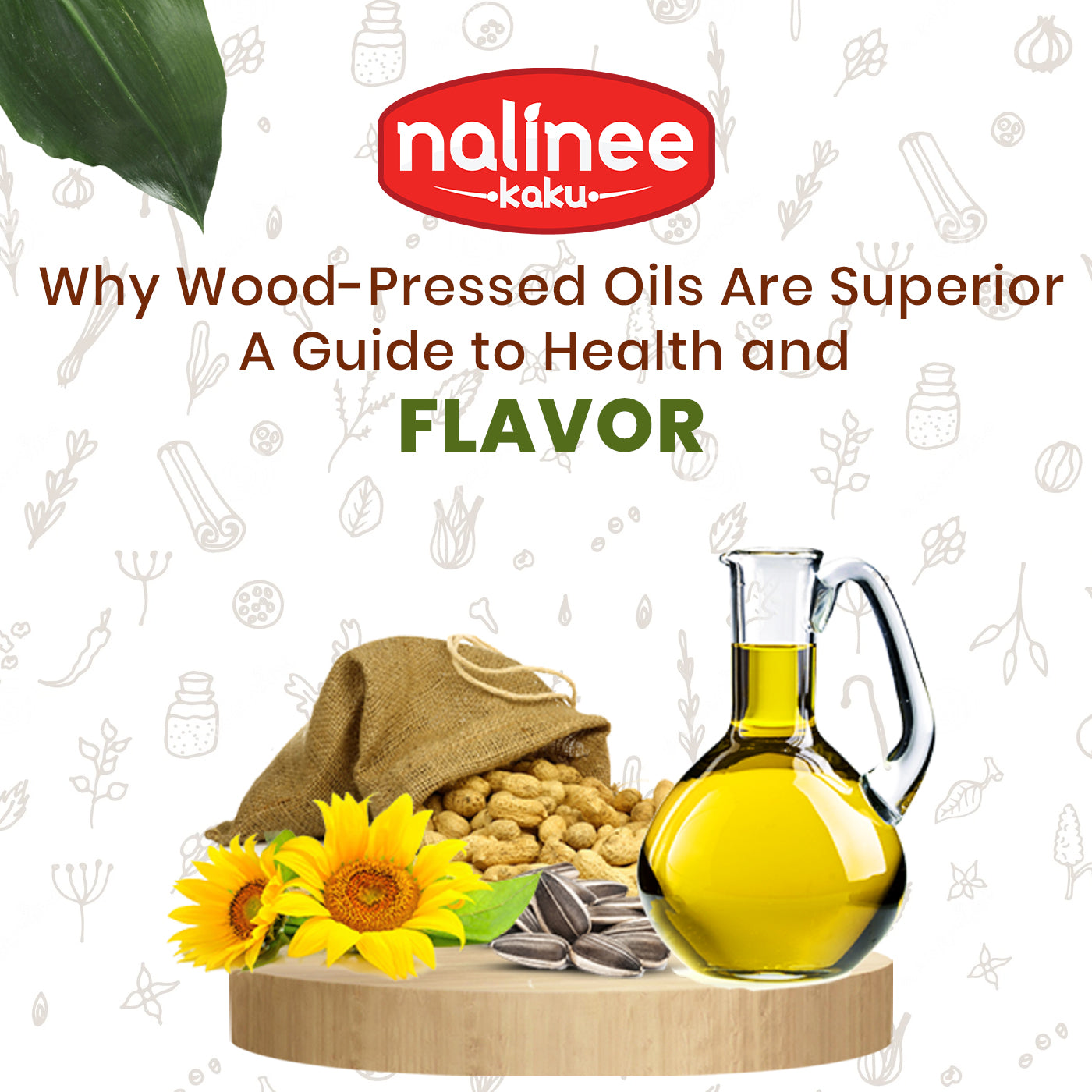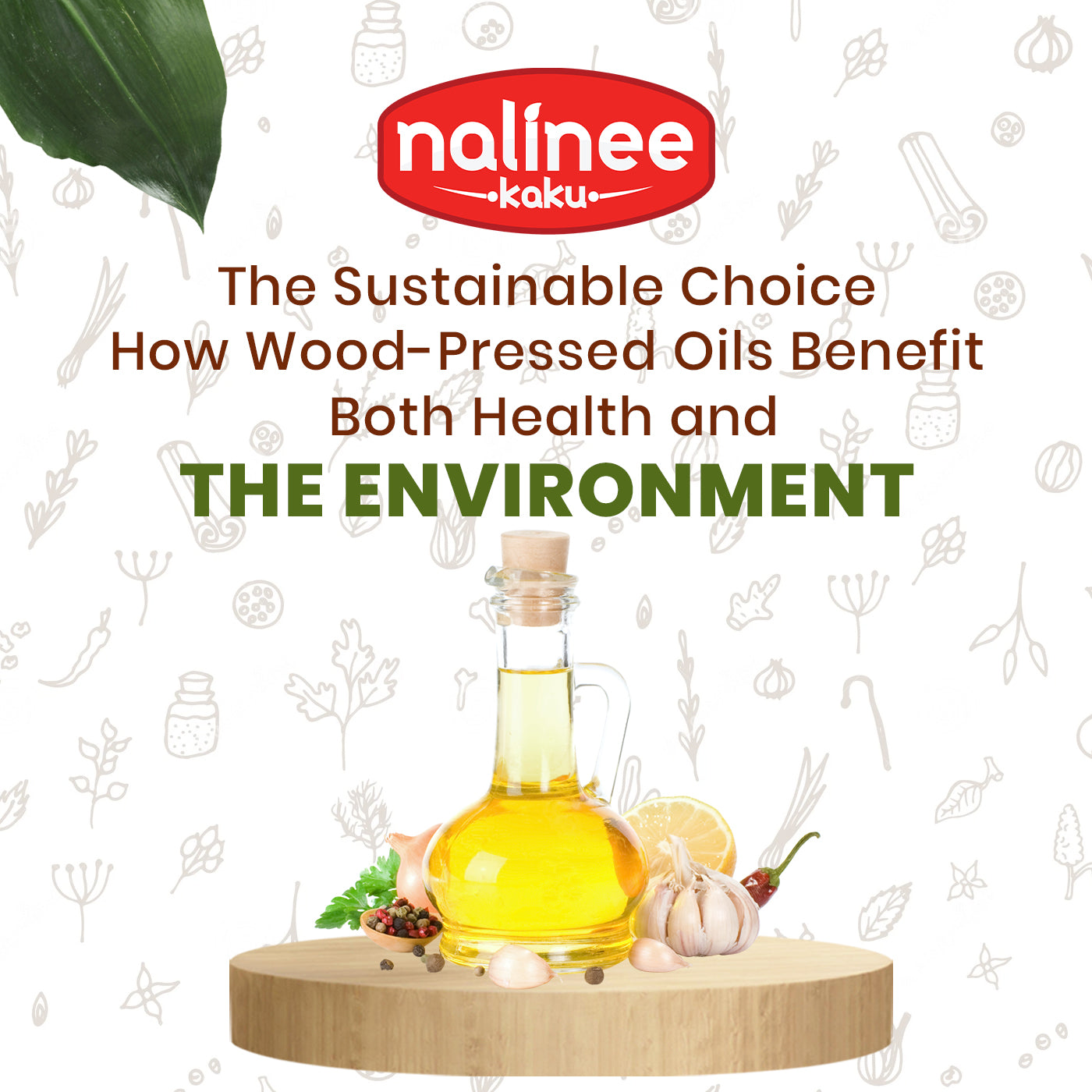Why You Should Switch to Wood-Pressed Oils: Health and Environmental Impact

Introduction
As awareness grows about the impact of modern food processing methods, many individuals are seeking healthier and more sustainable alternatives. Wood-pressed oils have emerged as a superior choice, offering numerous health benefits and a positive environmental impact. This blog explores why switching to wood-pressed oils is a wise decision, highlighting their health benefits, environmental advantages, and how they can enhance your overall well-being.
The Health Benefits of Wood-Pressed Oils
a. Nutrient-Rich
Wood-pressed oils are known for their rich nutrient profile. Unlike refined oils that lose many of their natural nutrients during processing, wood-pressed oils retain essential vitamins, minerals, and antioxidants. For example, cold-pressed olive oil retains high levels of monounsaturated fats and polyphenols, which contribute to heart health and overall wellness.
b. Improved Digestive Health
Certain wood-pressed oils, such as castor oil, have been used for their digestive benefits. The natural compounds in castor oil can help relieve constipation and promote regular bowel movements. Additionally, oils like coconut oil contain medium-chain triglycerides (MCTs) that support healthy digestion and metabolism.
c. Enhanced Skin Health
Wood-pressed oils, such as almond and jojoba oil, are popular for their skincare benefits. These oils are rich in essential fatty acids and antioxidants that help nourish and protect the skin. Regular use can improve skin texture, reduce inflammation, and provide a natural glow.
Environmental Advantages
a. Sustainable Production
The production of wood-pressed oils is generally more sustainable than modern oil extraction methods. The traditional process requires less energy and fewer chemicals, reducing the environmental footprint of oil production. By choosing wood-pressed oils, you support a more eco-friendly approach to sourcing cooking oils.
b. Reduced Chemical Exposure
Wood-pressed oils are free from chemical solvents and additives commonly used in refined oil production. This reduces the risk of chemical residues in the final product and contributes to a healthier environment.
c. Support for Local Economies
Many wood-pressed oils are produced by small-scale, local producers who use traditional methods. Supporting these producers helps sustain local economies and promotes the preservation of traditional practices.
How to Incorporate Wood-Pressed Oils into Your Diet
a. Choosing the Right Oil
Different wood-pressed oils offer various flavors and health benefits. For instance, sesame oil is excellent for Asian dishes, while coconut oil is ideal for baking. Select the oil that best suits your cooking needs and flavor preferences.
b. Cooking Tips
When using wood-pressed oils, consider their smoke points. Oils like sesame and groundnut oil have higher smoke points, making them suitable for frying and sautéing. In contrast, oils like olive oil are better used for dressings and low-heat cooking to preserve their delicate flavors.
c. Storage and Handling
To maintain the quality of wood-pressed oils, store them in a cool, dark place away from direct sunlight. Using dark glass bottles can help protect the oil from light and extend its shelf life.
Comparing Wood-Pressed Oils to Refined Oils
a. Nutritional Comparison
Refined oils undergo extensive processing that often strips away beneficial nutrients. Wood-pressed oils, on the other hand, retain their natural vitamins, minerals, and antioxidants, offering a healthier alternative.
b. Flavor Profile
Wood-pressed oils have a distinctive flavor that enhances the taste of dishes. In contrast, refined oils typically have a neutral flavor, which may not add the same depth to your cooking.
c. Environmental Impact
Wood-pressed oil production is generally more environmentally friendly compared to refined oil production. The traditional process requires less energy and fewer chemicals, contributing to a more sustainable approach.
Conclusion
Switching to wood-pressed oils offers numerous benefits, including improved health, reduced environmental impact, and enhanced flavor. By making this change, you can support a more sustainable and health-conscious approach to cooking while enjoying the rich taste and nutritional advantages of traditional oils.



